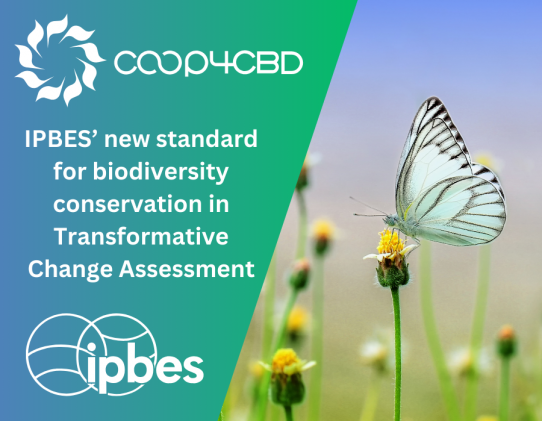
IPBES sets a new standard for biodiversity conservation in its Transformative Change Assessment
The 11th Plenary session of the Intergovernmental Platform on Biodiversity and Ecosystem Services (IPBES) took place in Windhoek, Namibia in December 2024. With the approval of delegations representing 147 countries, the event saw the unveiling of the so-called Transformative Change Assessment. It is the purpose of this critical document to analyse the transborder transformations needed to reverse the biodiversity decline felt across the globe.
With this goal in mind, the assessment identifies multi-faceted and far-reaching transformative change as a necessary condition on the road to fulfilling the commitments within the Kunming-Montreal Global Biodiversity Framework of the Convention on Biological Diversity (UN CBD). The concept is further defined as the authors single out its four underlying principles:
-
equity and justice
-
pluralism and inclusion
-
respectful and reciprocal human-nature relationships
-
adaptive learning and action
These are complemented by an improved understanding of the main drivers of biodiversity decline that necessitate transformative change in the first place. Those are namely the disconnection of people from nature; the inequitable concentration of power and wealth; and the overall prioritisation of short-term gains over long-term benefits to both people and nature. As daunting as those challenges may appear, however, the authors insist that human nature stands as a testament to the fact that transformations on a grand societal scale have taken place before and can do so again, this time in line with the principles of sustainable development.
Building on the evidence gathered over a three-year period by a team of more than 100 experts from 42 countries, the Assessment puts forward five concrete strategies that are meant to synergistically deliver transformative change across the planet:
-
conserve, restore and regenerate places of value to people and nature that exemplify biocultural diversity
-
drive systematic change and mainstreaming biodiversity protection in the sectors most responsible for nature’s decline
-
transform economic systems for nature and equity
-
transform governance systems to be inclusive, accountable and adaptive
-
shift views and values to recognize human-nature interconnectedness
At the core of each of those guidelines stands a vision of collaboration on a multitude of levels to deliver a transformative change that pertains to the collective as well as the individual. In that sense, it is concluded that disparate groups from the scientific community, policy-making circles, civil society and the general public need to work together and on their own on a daily basis when it comes to ensuring the lasting conservation of the biosphere.
The media release on the Assessment can be accessed here, while the summary for policy-makers can be found here. For additional insight on this critical output, you can also review proceedings at the dedicated policy workshop that the TRANSPATH project organised on the topic. More information on the event can be found on the project’s website.